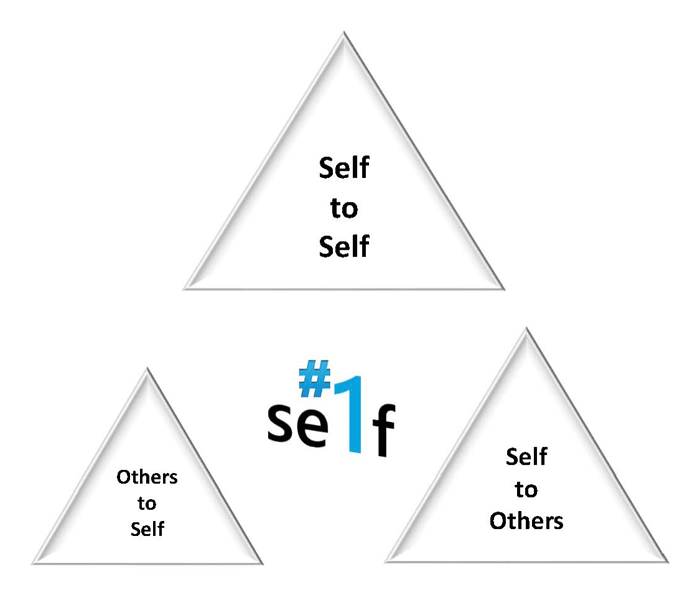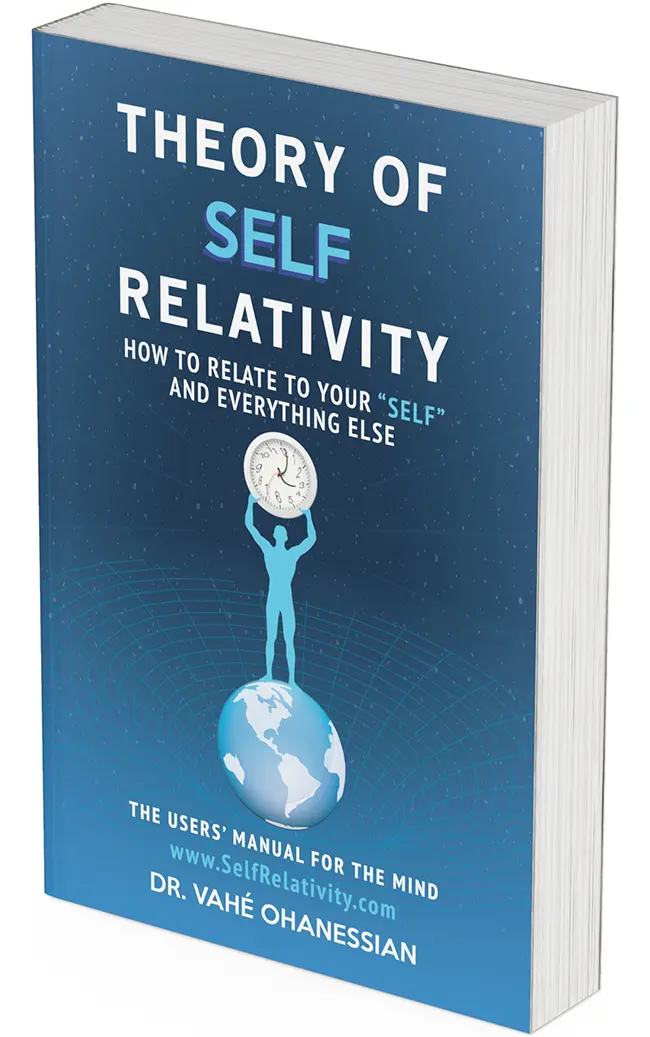Everything’s Relative
Everything in The-Universe is relative and to have the most balanced relativity we must remain unbiased, adaptable but well-defined.
Although everything is relative, “Self-Relativity” or “Personal-Relativity” should not be just two-dimensional.
Theory of Self-Relativity defines “Self-Relativity” as “the interactions and relationships of the Self internally and externally with the Self and with everything and everyone else.”
Therefore, true Self-Relativity could be viewed from not just two but from three different perspectives. “Trilateral-Relativity” is a perspective that is coined and defined by Theory of Self-Relativity which enables us to observe and recognize our relativities and characteristics with our own Self, with others and others’ relativities with our Self from a three-sided perspective.
Theory of Self-Relativity defines “Trilateral-Relativity” as “the three-sided connections, interactions, and relationships of one’s Self with the Self and with others.”
Representation of our relativities with everything and everyone else in a trilateral-format enables us to recognize how much more focused we are externally rather than internally. Recognizing our trilateral-relativities enables us to visualize why living a centered-self life from the inside-out enables us to become aware that our Self-Relativity is the most important aspect of our relativities and why our relativity to others should be the lesser important one

Trilateral-Relativity consists of:
- Self-to-Self Relativity: How we relate to our own Self and how we view, perceive, understand, feel and value our own Self. This is the most important yet most ignored of all Self-Relativities.
- Self-to-Others Relativity: How we relate to our own Self and how we view, perceive, understand, feel and value our Self relative to others. This is the second most important of all Self-Relativities.
- Others-to-Self Relativity: How others relate to our Self and how others view, perceive, understand, feel and value our Self relative to their own Self. Although significant, according to Theory of Self-Relativity other people’s relativity to us should take a back seat to our own personal-perspective of our own Self because if we cannot be aware of how we relate to and how we view, perceive, understand, feel and value our own Self; we would not be able to properly relate to how others view, perceive, understand, feel and value us. This is why Theory of Self-Relativity insists on living a centered-self life and to live our life from the inside-out.
When we place our Self in the middle of Our-Universe and when we realize that we are the most important entity in Our-Universe, it is only then that we will recognize that in order for us to be in actual equilibrium and harmony with everyone and everything else in The-Universe we must live a centered-self life from the inside-out.
Expecting more of your Self is what creates a lack of self-worth; doing more for your Self is what increases self-worth.
Through living a centered-self life and by living life from the inside-out you will learn to:
- Do more for your Self and not expect more of your Self.
- Do more for your Self and not expect more of others.
- Do more for your Self and expect less of others.
Expecting less, lowers our expectations and when we expect less, we lessen our disappointments; especially when our expectations are reliant on other-people’s participation and performance. Hence when we expect less, especially from others; we increase our self-reliance. Likewise, instead of expecting more of ourselves and/or others, we should do more for our Self and expect less of our Self and/or others. Doing more for our Self and expecting less of others doesn’t mean being selfish but it means to prioritize our self-interests first before others but not at the expense of others.
Expectations often lead to disappointments, especially when reliant on others.
Don’t expect more…Do more!
- Do more for your Self
- Expect less of your Self
- Expect less from others

